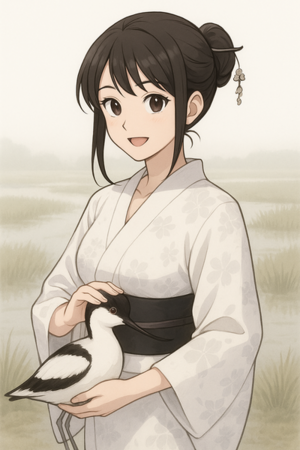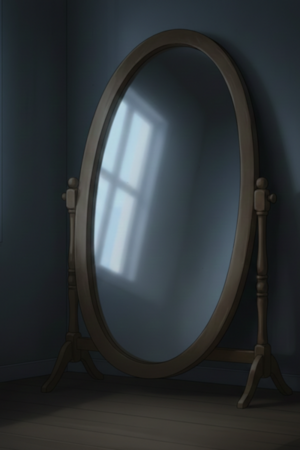Chapter 1:
Old wounds in the marsh
The Lonely Wader
Their boots vanished into the brown waters, the wavelets gently lapping at their feet. The tide was low, no higher than their ankles but raising, and as they walked, the mud resisted their steps, holding on with a vacuum-sucking squelch.
The man in front slowed, and as he crouched down, he shifted the weight of his gun from one tweed shoulder to the other. He raised his hand, and the other two men bent down behind him. The reeds swayed as they waited, their hands buried in their armpits, resisting the cold.
The glass of their binoculars caught the early spring sun. No sign, not yet. They started to move again but slower, their feet barely breaking the water surface. Their backs ached as they strained to keep cover in the reeds.
A splash caused them to stop. They knelt and scanned the water, holding their breath, listening. More splashes came from nearby, regular like a hand stroking the water surface. Finally, they caught sight of their quarry.
In the shallow mere in front of them just beyond the reedbed, a single white bird waded. A black-capped head swiped back and forth, its upturned beak tasting the water.
The third and youngest man pulled out his camera. He set the aperture and shutter before taking the shot. That was half their mission a success. A few scribbles in his notebook later, and they were heading back to the village.
Stanley, a man in his 20s, leaned on his walking stick as they made their way. If he had a last name, his two older companions had long forgotten it. Despite being the youngest, he struggled keeping up with the others, his pace slow from heaving his trailing right leg over the mud.
‘Mr Stapleton, have you ever seen an avocet before?’ Stanley asked his senior.
‘Many times, my lad, but first time in England,’ Answered Mr Stapleton, a well-dressed if muddy man. He removed his holborn hat and bowed his greying head to the shortest and oldest among the three. ‘You were absolutely right, Mr Fobbing, thank you.’
‘See. It was as I said. You’d be more careful who you accuse of lying next time.’ Mr Fobbing replied as he tapped his free left hand on his growing waistline, and his right gripped his gun.
‘Now, don’t be like that. I only pointed out that it has been over one hundred years since the last sighting around here.’
Mr Fobbing was hardly listening though. As they talked, a flock of ducks flew overhead. With surprising speed for his age and weight, he took off into the marsh. A few minutes later the sound of a 12 gauge echoed through the reeds. More shots followed.
While they waited for their guide, Stanley asked his senior another question. ‘What happens now, Mr Stapleton. Do we inform the societies?’
‘Of course, although it is a question of timing.’ The senior man gestured as though weighing up the options. ‘We don’t want to be too hasty. Avocets have occasionally flown over from Holland. What we really want is a nest.’
Mr Fobbing, in the meantime, had returned with his prize, several mallard carcasses dangling over his shoulder: Their heads rolling from side to side, their feathers sticking together, encrusted in blood.
‘There’s no need to bring in more outsiders.’ he said, agreeing with Mr Stapleton for once. ‘We can look after these marshes on our own. There’s been enough outsiders here as is.’ He said, darting a quick look at his companions.
‘No one wants to put the locals out, Mr Fobbing, but if there is a nest, well: newspaper articles, conferences, book deals, you name it. A long-lost child of England is coming home, I hope for good. Just like the boys from the war.’
At the mention of the war, Stanely massaged the old wound on his leg. The war had left its mark across the country, not least these marshes. The land had been flooded by the army, another defence against invasion, along with the minefields and barbed wire. Most villagers avoided the area, besides Mr Fobbing. It would be an incredible irony if actions taken to defend England against invaders had acted like an invitation to a far less deadly and far more welcome guest.
As the sun settled and the three men returned to the village, they made their way to the local for dinner and drinks, Mr Stapleton’s treat. All three left much merrier and far less steady than when they arrived.
‘We will see you bright and early, my lad.’ Mr Stapleton said, patting Stanley on the back. ‘Make sure you get plenty of sleep.’
Mr Fobbing grunted a goodbye and headed home. With one final wave Mr Stapleton stumbled in the opposite direction towards the large county estate where he was staying.
Stanley, now alone, leaned on his walking stick while thinking about his first encounter with an avocet. He grinned from ear to ear and set off for his little cottage.
He first fell in love with birding while listening to blackbirds sing on the rooftops of his hometown. He used to sit, eyes closed, listening to the complex patterns of notes sung in liquid tones. Since then, he had travelled the country seeing gannets, capercaillies, puffins and even red kits soaring in Wales, but the graceful avocet was his new favourite.
Today was a good day, he thought, even the pain in his leg was quiet, although that might be the beer. But would they really find a nest? Mr Fobbing said the bird had been there for weeks, but without a mate...




Please sign in to leave a comment.